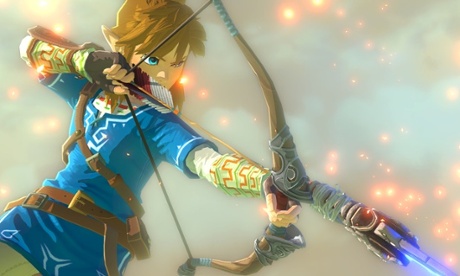
Marvel has announced that the next character to become Thor, after taking up the hammer of Mjölnir and proving worthy of its power, will be a woman. The as-yet unidentified protagonist will star in a new comic series, written by Jason Aaron with art by Russell Dauterman, which launches in October.
Marvel has billed it as "one of the most shocking and exciting changes ever to shake one of the 'big three' of Captain America, Iron Man and Thor".
It is, of course, something of a marketing exercise. Like video games, mainstream comics have been widely lambasted for their portrayal of women characters. Leading female heroes are comparatively rare on the DC and Marvel rosters and usually overtly sexualised, portrayed in skintight outfits, cut high across the stomach and low over the cleavage.
Certainly, male characters have been idealised as muscular titans, but they have rarely been objectified as titillating eye candy in the same way as their female co-warriors.
Things are changing. As multimedia artist Laurenn McCubbin pointed out in her response to the recent controversy surrounding Wonder Woman's feminist credentials, comics are becoming much more inclusive and intersectional. A growing number of readers and writers beyond the traditional demographic of young men is leading to an array of new characters and scenarios.
In the mainstream, a lot of the progress is happening in the reinvention of stock female characters – Kelly Sue DeConnick's Captain Marvel and Gail Simone's Red Sonja, for example – or the rebooting of female takes on male heroes, such as Batgirl, one of the most successful titles in DC's 2011 "new 52" range revamp.
But Marvel's latest escapade – actually transitioning a stock character from male to female has already garnered mass social media interest. Is this something games publishers could try?
Given the industry's well-reported reluctance over introducing new women characters, perhaps swapping over male protagonists is the best hope we've got. After all, there was a huge amount of interest last month when artwork depicting the forthcoming Wii U instalment of Legend of Zelda seemed to show that series hero Link may be a girl. Nintendo quickly refuted the rumours, but the publicity must have had them thinking.
Ubisoft, for example, is in trouble for telling everyone that female characters were a bit too much of an effort for the Assassin's Creed Unity development team; it could maybe redeem itself with Princess of Persia to reboot its once hugely successful action adventure series.
Or there's always Ray-Woman, of course; or a Samantha Fisher to re-enliven Splinter Cell. The Metal Gear Series, another franchise that has been discussed for its problematic treatment of women, could easily imagine an offshoot where Dr Clark produced a female Snake clone in those original genentic experiments.
Meanwhile, Gearbox would spare us all from yet more machismo sub-humour by reinventing its long-running shooter series as Duchess Nukem. And perhaps future DLC for Grand Theft Auto V could answer criticisms of its all-male cast by re-inventing at least one of the trio as a woman. The prospect of a female Trevor Philips is surely just about disturbing enough to pique the interest of Rockstar's edgy development team.
OK, this is silly, but then, in comics and games, the audiences are growing and diversifying, yet the gender imbalance in both both characters and writers is only very gradually improving. So gender-swapped reboots may be the safest way for publishers to improve the ratio.
It's like Geena Davis wrote last year, in a guest article for Hollywood Reporter entitled, "Two easy steps to make Hollywood less sexist":
Go through the projects you're already working on and change a bunch of the characters' first names to women's names. With one stroke you've created some colorful unstereotypical female characters that might turn out to be even more interesting now that they've had a gender switch.
Perhaps publishers should just do that with their back catalogues – you know, see what turns up. I mean, gamers have been doing it themselves for years anyway. Here is Vaas from Far Cry 3 as a woman; here are Luigi, Kratos and others; and if you have some free time, just put "Sonic the Hedgehog as a woman" into a Google image search. You're welcome.
As in comics, video game universes are hyper-real, malleable and usually pretty transgressive – they don't need excuses, they don't need formal logic. They can explore representation in so many weird and interesting ways.
Mass Effect's bi-gender lead protagonist is great; the fact that Sunset Overdrive lets you create characters of any colour or combination of genders is even better. But outside of the RPG genre, these instances are rare.
Thor as a woman is an easy gimmick, a promotional no-brainer. But hey, it's probably going to work for Marvel – and what works in comics can work in games. Thinking about representation is good; allowing people to see themselves in the media they experience is good.
And anything that moves us on from the perennial justification of, "yeah, but there's Lara Croft and Jill Valentine and... all them, so there are plenty of women in games" is probably a good idea. Even if it is a really daft good idea.
• Video games need more women – and asking for that won't end the world
• Why does the games industry have such a problem with female protagonists?

